The Giggster Hosting Guide Part I: Should I Rent My House for Film Shoots?

Over the past few years Giggster has established a reputation as the film industry's premier location listing platform. With great power comes great responsibility, and we wanted to take some time to share our advice and honest feedback on the intricacies of hosting filming location rentals. While there are big revenue opportunities (some of our hosts earn more than $50k per year!) there are also certain risks involved.
In order to help guide new and prospective property owners through the location hosting process, we decided to sit down with our resident location rental expert, and Head of Client Services, Kelsii Dyer to get her quick takes on the biggest questions facing film location hosts today.
The following is the first segment of a four part series breaking down everything you ever wanted to know about listing your space as a film location.
Reagan Cook: Kelsii, thanks for taking the time to chat with me today. I know you have an incredibly busy schedule and it means a lot that you're willing to sit down and share some of your insider insights on the location booking process.
Rent a location for your next film or photo shoot project on Giggster – A better way to book locations.

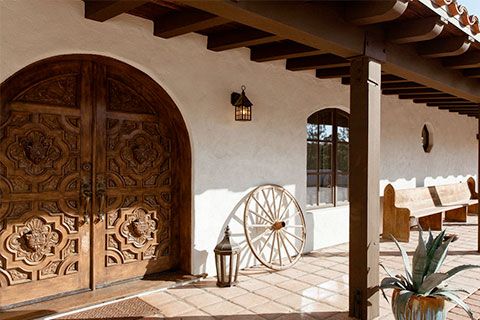
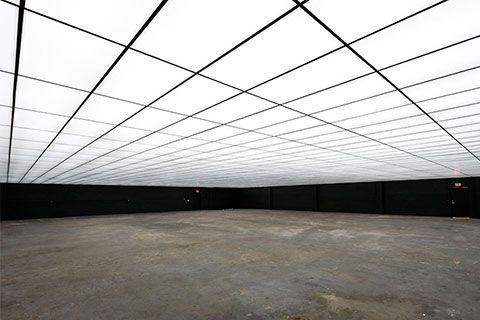
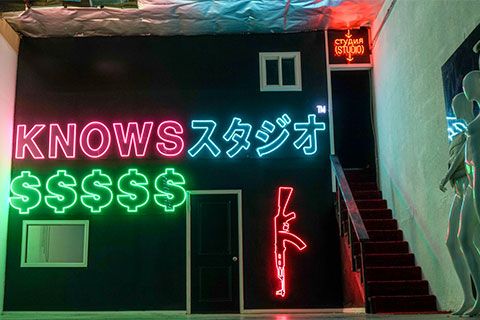
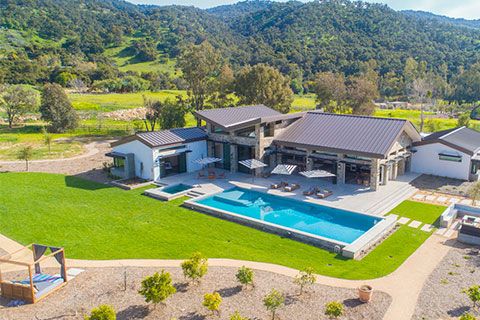
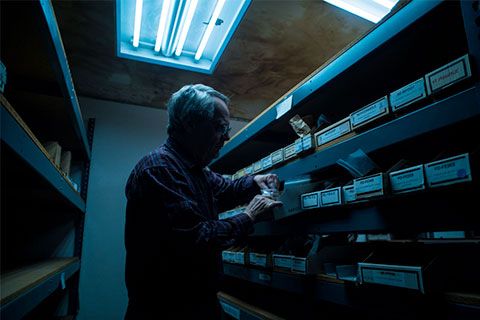
Kelsii Dyer: It's my pleasure. Hosting film shoots in your home can be intimidating at first, but I think once you get the hang of it, it's incredibly rewarding. I'm happy to share my advice, and hopefully it will help our community of owners get even more value from Giggster.

RC: I'm going to start with a question for all those owners who still haven't decided if listing is right for them. What would you say are the biggest benefits of renting out your property for film productions?
KD: When I'm talking with a prospective host who is on the fence about listing their location on Giggster I always tell them the same thing: listing your location does absolutely no harm, and the potential benefits are incredible. Listing your property as a filming location doesn't mean you're going to be a location host - plenty of properties on Giggster have never hosted a shoot - but it does open up an incredible future opportunity.
Once your property is listed on a location library like Giggster, it gives your home exposure to a premier community of high-paying brands and production professionals. Maybe that means no interest, or maybe it means a $40,000 Vogue cover shoot. Listing on Giggster creates the opportunity, accepting your first booking is when you actually become a location host.
"Listing your location does absolutely no harm, and the potential benefits are incredible."

RC: What are some of the biggest points of resistance you see from potential location hosts?
KD: The main question that prospective owners ask is "Will my house be protected?" It doesn't matter if their property is worth $500,000 or $50 million, that is always the number one priority on people's minds. People's homes are usually their biggest assets, and they want to know that Giggster isn't going to send in people who are going to ruin their home.
There are also usually some concerns around content. A lot of people jump to the conclusion that hosting shoots in LA often involves adult content, I'm not sure why, but it's a common misconception that needs to be addressed. As you know, Giggster has hosted thousands of shoots on the platform in dozens of cities around the USA. While there is occasionally some nudity on set, I've never seen a Giggster host that's hosted a porn production. I'm not entirely sure why, but it's just not a request that shows up.
RC: For those property owners who are already hosting their space on sites like Airbnb, what would you say is the biggest difference when it comes to making the switch to hosting productions?
KD: If you're renting your entire property as a vacation rental, you don't get to go home at night. That's a big disadvantage. Most Airbnb bookings are paid per overnight stay, and while most of those hours are going to be spent sleeping, it's still a big disruption for your space. Alternatively, with Giggster, even for a full 10 or 12 hour shoot day, you're going to be able to return to your home in the evening and know that everyone is gone, and that you have the space to yourself, back to the way you left it.
Because Giggster is for professionals, responsibility for getting your space back to a pristine condition rests on the renters shoulders. You CAN hire professional cleaning crews, and charge for that, but in my years of experience that step is very rarely necessary. Additionally, because you're most often dealing with companies renting your space (as opposed to individuals) you can rest easy knowing that they have production insurance to cover potential damages. While Airbnb has liability coverage, severe damage that extends beyond the security deposit can be hard to re-coup. To summarize, Giggster is just a bit more professional. Success requires more work (or a nicer home) but the benefits are ten-fold that of short-term rentals.
"If you're renting your entire property as a vacation rental, you don't get to go home at night. That's a big disadvantage."

RC: What would you generally describe as the amount of risk involved in hosting film productions on Giggster?
KD: An experienced location host will ask the right type of questions to ensure that their location is properly protected. The biggest problems on-set occur as a result of unforeseen surprises, most often, too many crew members and stunts or special effects that create a disproportionate amount of risk. Understanding exactly what is going to happen at your property is the best way of ensuring things go smoothly.
Hosting a 10-person business mixer is a lot less risk than hosting a 400-person brand launch event, with a food-truck that will be parked on your front lawn. You should know what your property can adequately host, and you should make it your responsibility to know as much about what going on during the shoot as the production crew.
RC: What are the thing you can ask for to help control risk?
KD: For certain high-profile shoots there may be some restrictions on access to scripts or specific details on the names of the celebrities involved, however, for the most part productions are going to be an open-book, and will be very honest about what they are trying to achieve. If they tell you they are going to shooting "exteriors-only" you can rest assured they are not going to be inside your house.
One of the biggest perks of being part of a community like Giggster is that it's pretty small (relative to the global vacation industry). I know hundreds of our renters on a first name basis, and I even have their personal cell phone numbers in some cases. This close knit community helps promote a sense of trust, because a renter knows that if they lie, or give a host a hard-time, that reputation will be carried over the next time they are trying to book one of our locations.
If there's anything that's particularly sensitive that you're worried about, you can always add an addendum into the Giggster location contract. For example, you could add a clause like "any crew caught wearing shoes inside the home with incur an immediate $1,000 penalty".

RC: Would you say that's it's easy to be a filming location host on Giggster?
KD: I would say it's really easy to be a host. Of course, I would say that the more flexible you are the more likely you are to find success, but it's very easy to get started. As I mentioned, you can list your space and not accept any inquiries - it's fine to be choosy.
As an example, some of our owners are only interested in hosting still photography - others won't get out of bed for less than $5,000. Obviously, these types of restrictions are going to have an impact on how much you can earn, but generally, if you have a cool property, listing it, and booking a couple of shoots a year is a straightforward process, and something that I recommend to all of my home-owning friends.
RC: What are the most common characteristics of extremely successful filming location hosts?
KD: I would say being open to projects and willing to negotiate pricing and terms of the booking once you receive an inquiry. You might have a standard $200 hourly rate, which generally covers risk and impact of a small 15 person film crew, but if you receive an inquiry from a fashion influencer who wants to take a few quick photos, it generally makes sense to work with them on a more reasonable rate.
One of the key differences of Giggster, compared to other filming location services is that all properties on our site have a listed hourly rate. For owners, it's important to think of this rate a starting point, and be willing to occasionally lower or increase the price depending on the project budget.
Beyond flexible pricing, general adaptability is definitely a characteristic I see in our top performing hosts. Production is hectic, most renters are going to be genuine and honest, but sometimes things go outside of their control. Maybe they're 20 minutes late, or they actually need to shoot a scene in a room that they didn't mention on a scout. Most of the highest earning hosts I know are those that are accommodating and willing to help out when these types of situations occur.
Interested in becoming a host on Giggster?
Learn More Here

